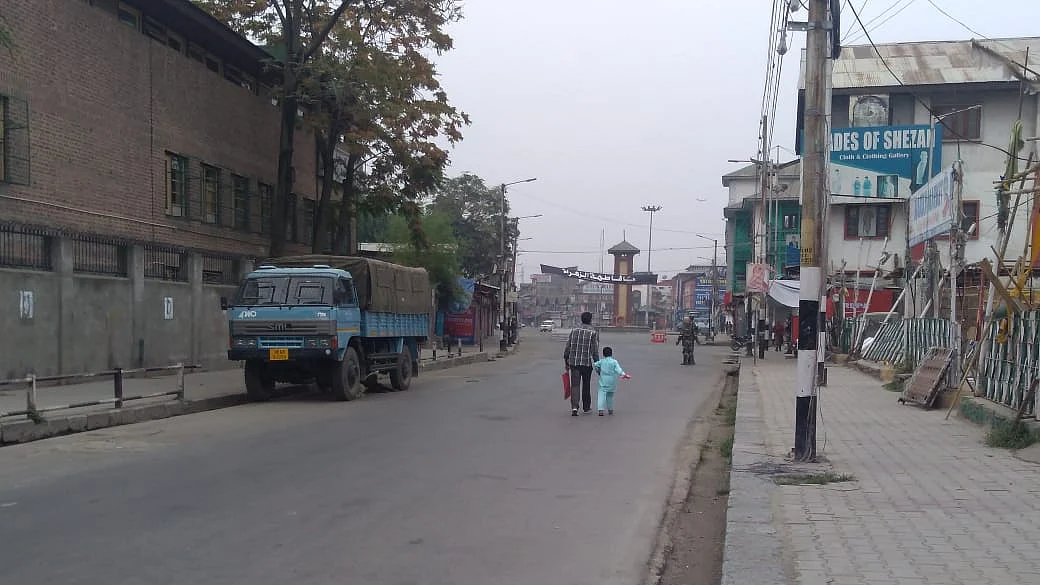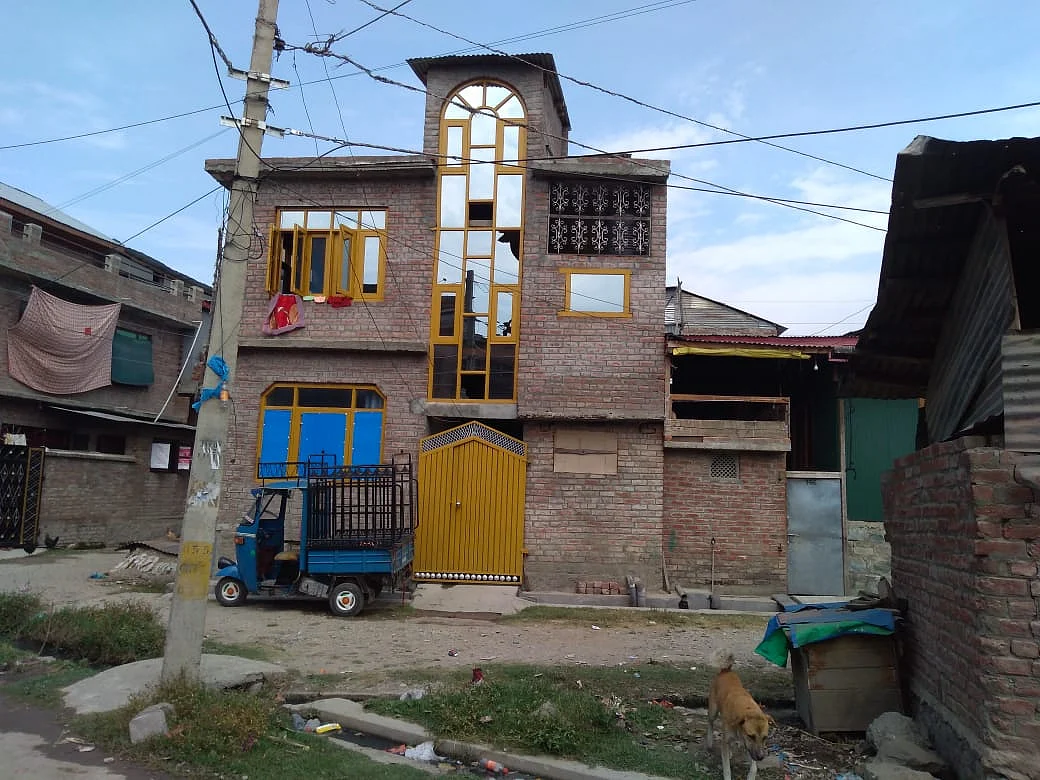Kashmiri women living under constant threat of molestation and abuse, says report
A four-member team from Women against Sexual Violence and State Repression (WSS), which visited Kashmir from September 23-28, has released an alarming report about the conditions in the Valley<b></b>

A four-member team from Women against Sexual Violence and State Repression (WSS), which visited Kashmir from September 23-28, has released an alarming report about the conditions in the Valley.
“There is always a threat of violence by the forces hanging over the heads of Kashmiris. The families are worried even if their sons go out to play as they are not sure their sons will return home. They are living in a constant state of fear as the personnel of the armed forces forcefully enter homes in the wee hours of the morning. Imagine what goes through the women in such situations. Today marks the 60th day of shutting down communication lines across the Valley,” highlighted Nandini Rao, an independent feminist activist and member of WSS.
The WSS team travelled across areas comprising districts of Srinagar, Shopian, Kupwara and Baramulla, speaking to several women and children to understand the conditions ever since the government blocked communication channels and sent in more armed forces into the region after the abrogation of Article 370 on August 5.
“People in Kashmir are used to shutdowns, so they stock up ration, dry a lot of items including rice, walnuts. The armed forces force their way into homes and destroy what is meant to be eaten. They mix rice with chilli powder, take away walnuts. What can you call this intrusion other than aatankh (terrorism)?” said Rao.
“The armed forces, who take away children and men, often demand bribes. We have met families who have had to pay from Rs 6,000 to Rs 2 lakh to get their family members out of custody. In most of the cases even FIRs are not filed,” said Shivani Taneja, a women’s rights activist, who was also a part of the team which went to Kashmir.
The activists said that they have heard that more than 13,000 people have been incarcerated, but it is difficult to pin down the number as official refuse to file cases. They had met a young 10-year-old girl who was pushed around and stamped upon by the Armed Forces while she was asleep. Women and children are often sent to safer localities by the Kashmiris so that the forces do not violate them.

“The Kashmiris are saying that the shutdown is self-imposed. If people don’t like the government’s policies, they protest for a day or two in the rest of the country, but Kashmiris are saying they have been oppressed for so many years that now this is all that is left. This is will power in this silent protest,” underscored Taneja.
“There is hopelessness and an emptiness all around. The Kashmiris are saying that they are facing troubles because their business establishments are shut, but this has been the final blow. The government did not even think that they had to ask the people. The question is ‘why did they do it now’. Earlier there were several people who were in favour of the Indian government and some were confused, but now, everyone is against the government,” added Taneja.
“People are furious with the Indian media for disseminating wrong and misleading information about Kashmir. They all want to project that there is a state of normalcy. But all that they are showing is a lie. The armed forces stop cars near signals under the pretext of checking documents and immediately someone will photograph the scene and it will be shown that cars are on the road. They see all this happening and the Kashmiris are politically aware,” explained Taneja.
“The repression is widespread. It will lead to many mental issues. The Kashmiris have reached a stage where they are willing to undergo losses to ensure that their voices are heard. They are saying that the government can bomb their areas as then they will die only once and not die every day like now,” added Taneja, with a tinge of despondency.
An elderly man was informed that his nephew was in Agra, but the women in the family could not go. Even when the men went, they were not allowed to speak in their own language.
According to the team members, they said they have heard the armed forces speaking derogatorily about Kashmiri women. “They keep taunting younger women saying that after the communication blockade is lifted, they all can marry them. Women have said that they have seen the members of the armed forces unzip their pants in front of them, but they don’t complain to their parents as then they will not be allowed to step out. The forces also threatened women giving the example of the alleged mass rapes of Kunan Poshpora in 1991. The women are living under a constant threat of molestation and abuse,” added Rao.
The team met a young 20-year-old woman who had hoped to study further and work outside her home, but she doesn’t think it is possible any longer. Her 12-year-old brother had been picked up by the forces a few days ago and was “returned” to the family in a state of terror.
“In most localities, windows have been broken in almost every home by the forces. Now, people don’t even repair it, they just cover it with cardboard,” added Rao.
Both Rao and Taneja said that WSS believes that the government needs to ensure justice by punishing erring personnel of the security forces present in swarms across the Valley. The fundamental rights of the people of Kashmir need to be restored, they said.
Follow us on: Facebook, Twitter, Google News, Instagram
Join our official telegram channel (@nationalherald) and stay updated with the latest headlines
